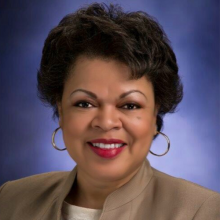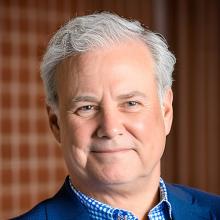Rethink the College to Career Pipeline in a Skills Based Economy
The college degree is, in many respects, an imperfect tool for signaling a person's capabilities, let alone their long-term potential in the professional world. Employers are often left to do guesswork on a candidate's fitness for a role based on simplistic measures like standardized test scores, concentrations or majors, and transcripts. To fix this, higher education must rise to the challenge of defining and demonstrating the value of the college experience and quantifying the skills and abilities their graduates possess. Understanding why these connections - and disconnects - exist is crucial, so that colleges and employers can start to close such knowledge gaps. They also must share this information with employers so companies can better comprehend and utilize the talents of new college graduates. Today's world of work is an ever-evolving place that requires both institutions and employers to rethink the college to career pipeline.
Learning Objectives:
- Explain how technology can help you more easily connect data to what students are learning and to connect companies directly with potential employees - is also emerging.
- Discuss how advances in machine learning can help institutions and employers accurately forecast the labor market value of the educational experiences they provide.
- Equip students, advisors and employers with important information on how those experiences can translate to quantifiable and marketable skills.
- Most industries hire for specific technical abilities rather than harder-to-measure soft skills and knowledge, like communication and problem-solving. Yet, many of the most successful executives in the technology industry have humanities backgrounds- yet we know next to nothing about how their college experiences led to these leadership roles.
In-person session offerings are on a first-come, first-served basis.
To view all event accessibility & accommodations details visit here.
If a speaker has provided session materials, please visit https://presentations.shrm.org
Mike Bollinger

Mike Bollinger is an accomplished executive with 20 years of industry experience. In his current role as Vice President of Strategic Initiatives with Cornerstone, he is responsible for internal research as well as strategy development around outcome-based goals. Mike helped found and currently manages the Cornerstone People Research Lab (CPRL), whose mission is to generate data-driven discoveries about the world of work today and identify emerging trends which will give rise to new work models. Mike also collaborates with Cornerstone clients in an executive capacity as a leader, influencer, and change agent who applies expertise to complex businesses.
Janet Sellars

Mrs. Janet E. Sellars is the Human Resources Director for NASA’s Kennedy Space Center. She serves as the Center Director's principal senior advisor on all human capital matters. She is also the Executive Champion for Diversity for NASA’s Office of the Chief Human Capital Officer. Mrs. Sellars has held various roles in NASA in STEM Engagement and Diversity and Inclusion. She is a veteran of the U.S. Air Force. Mrs. Sellars holds an undergraduate degree in Sociology from the University of the State of New York, Regents College, and a master’s degree in Human Relations from the University of Oklahoma.
Lou Pugliese

Lou Pugliese is an innovator, thought leader, and successful social entrepreneur with a life-long passion in designing and executing high impact education programs that connect and energize learning
communities. As a successful change lever, Lou has deep experience in developing technology based community networks that leverage data, research and insight that support and advance impact.
Adam Wray

Adam Wray is the founder and CEO of AstrumU, a Seattle-based data science startup that translates educational experiences into economic opportunity. Prior to founding AstrumU, he held a variety of senior leadership and founding roles at data analytics, cybersecurity, cloud, and machine learning-focused companies. He was one of the founders and CEO of Tier 3, a public sector cloud services provider acquired in 2013 by CenturyLink (NYSE:CTL), one of the largest U.S. enterprise telecommunications companies. As a board director for Observable Networks, he helped lead the cloud-based cybersecurity providers’ Series A investment and exit to Cisco Systems in July 2017.
Find Sessions by Day
Find Sessions by Speaker
Find Sessions by Topic
- Select Track
- Compensation & Benefits
- Employment Law & Regulations
- Global HR
- HR Department of One
- HR Technology and Data Analytics
- Inclusion & Diversity
- Leadership & Personal Growth
- People & Talent Management
- Recruitment & Talent Acquisition
- Strategic HR & Organizational Design
- Student Track
- Workplace Culture, Empathy & Work Life Integration
Find Sessions by Credit Type
- Select Credit Type
Find Sessions by Competency
- Select Competency
- Business (Behavioral)
- Business Acumen
- Communication
- Consultation
- Global & Cultural Effectiveness
- HR Expertise
- Interpersonal (Behavioral)
- Leadership & Navigation
- Leadership (Behavioral)
- Organization (Technical)
- People (Technical)
- Relationship Management
- Workplace (Technical)
Find Sessions by Intended Audience
- Select Intended Audience
- Advanced (Elevating I&D)
- Early Career
- Executive-level
- Mid-Level
- Senior-Level

